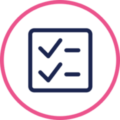What to expect from a Year 8 English programme
English is a stimulating subject that really comes to life as students enter their secondary school years. In their early teens, students are ready to grapple with some of life’s pricklier aspects and literature provides an excellent space for doing so. In English classes learners can connect with human experiences through story, empathise with characters who are different from them and observe characters coping with life’s challenges. In turn, they have opportunities to develop stories of their own and learn how to shape language with specific purposes in mind.
Year 8 English in a nutshell
Australia sees the study of English as central to the learning and development of all young people. English helps create confident communicators, imaginative thinkers and informed citizens. In English, students learn to analyse, understand, communicate and build relationships with others and with the world around them.
When it comes to Year 8 in Australia, English is made up of three interwoven strands: language, literacy and literature. Each strand interacts with and enriches the other strands in creative and flexible ways.
The Language strand in Year 8 English
The Language strand of English zooms in on word use, looking at how word choices can communicate ideas for a particular purpose. Year 8 learners will examine text types and the language conventions attached to each. Figurative language is explored, as well as other rhetorical devices that can be used to persuade. Students will learn how texts are organised to be cohesive and readable through the use of connective words. Instruction around “the small stuff” can be expected, such as punctuation rules and grammar tenses.
While the language strand focuses on the details, Year 8 students also step back to examine how people influence language and vice versa. This might mean looking at how Aboriginal language and verbal traits are incorporated into Australian English, identifying which words in English have been ‘borrowed’ from other languages or examining changes in the Aussie accent over time.
The Literacy strand in Year 8 English
Put simply, “literacy” is the ability to read and write. Additionally, the Australian curriculum includes spoken interactions and listening skills in the Literacy strand. This acknowledges the fact that many contemporary texts are multimodal in nature and that Year 8 students will select from a range of visual and verbal language choices to achieve a particular purpose. Students might study graphic novels, interactive journalism pieces or take part in a debate to develop the English skills associated with the Literacy strand.
Other skills developed in the Literacy strand are analysis, evaluation and comprehension strategies. Students will also learn to gauge the effect of certain features on an author’s purpose and how to vary the tone of a presentation or written piece through choices made in their own work.
English isn’t the only subject where Year 8 students will encounter literacy learning. It is also listed as a “General Capability” in the Australian curriculum meaning that teachers other Year 8 subjects need to offer plenty of opportunities for students to use and develop essential literacy skills
The Literature strand in Year 8 English
The exposure to and exploration of stories is central to a quality programme, and agurably the most memorable aspects of English classes. In Year 8, students will explore a range of Australian literature, including the oral narrative traditions of Aboriginal and Torres Strait Islander Peoples, as well as the contemporary literature of these two cultural groups, and classic and contemporary world literature. As well as adolescent fiction, Year 8 English students are likely to encounter poetry, non-fiction, graphic novels, magazines and dramatic performances.
Year 8s will develop as independent readers by enjoying texts from a range of realistic, fantasy, speculative fiction and historical genres. Themes become slightly more mature, such as interpersonal relationships and ethical dilemmas within real-world and fictional settings and students can expect to encounter a variety of perspectives.
With studied texts as a launching point, students will respond to literature, examine aspects of the author’s craft and create literature of their own. Unique to English classes in Australia is a focus on country/place, people, identity and culture in texts including those by Aboriginal and Torres Strait Islander authors.
How is Year 8 English assessed?
Achievement standards describe in detail the expected performance of Year 8 students in English. Teachers will make on-balance judgements about student work based on a range of pieces, which is also termed a ‘portfolio’. Student work is assessed holistically in Year 8 as “Satisfactory” “Above Satisfactory” or “Below Satisfactory.”
How do online tools enhance a Year 8 English programme?
Using a digital learning platform allows English teachers to build flexibility and self-direction into learning design. A certain novel, poet or graphic novel may spark an interest in geography, history, an unfamiliar culture or historical event. This in turn can lead Year 8 learners into other subject areas, allowing teachers to create an organically connected curriculum that builds on the specific interests of a learner.
With a selection of literary texts and accompanying learning resources at their disposal, Year 8 learners can analyse narrative in the range of forms that most interest and challenge them.
Incorporating digital tools to Year 8 English programmes can also motivate young learners. Gamifying the learning process with a competitive tool like Dash is a great way to keep the pace of learning fast and challenging in a Year 8 environment. Quizzes, self-assessments and timed exercises help learners develop mastery of English language, literacy and literary concepts.
The ability to set tasks and deadlines for completion is important for teachers. This teaches students the time management skills needed for successful independent learning as well as those important self-management attributes.
See how EP can complement a Year 8 English programme
Rote learning, made right.
When learning punctuation and grammar rules, students do need to “drill” the basics to some extent. There’s no better way for learners to master the foundational rules of the written language such as punctuation, verb tenses and agreements, word classes and sentence structures. That’s why a digital learning platform is excellent for engaging students in interactive learning content. It’s fast, fun and full of variety in both content and task design.
Help your students excel with fun and engaging teaching software

35,000+
Curriculum aligned lessons

10,000+
Learning videos

24/7
24/7 Personal Support

50,000+
Automatically Marked Questions
Why Use EP for Year 8 English?
EP is adjustable for every style of teaching. It’s built to enhance your ability as a teacher and offer your students both structured and flexible methods of learning. The platform allows you to adapt for individual strengths and weaknesses so every learner feels supported.
You can:
Create your own courses
Follow our pre built outlines
Engage your learner with our interest led functionality
Real time 24/7 tracking of student progress

Learn More On How Education Perfect Can Empower You:
For Schools
An online platform made for teachers

